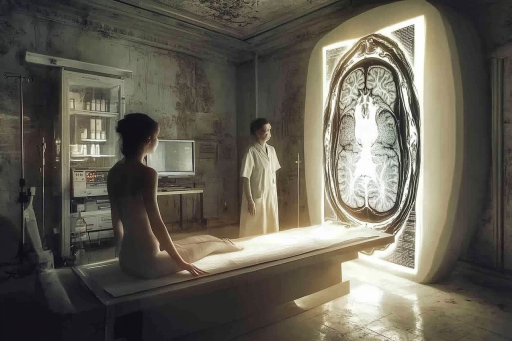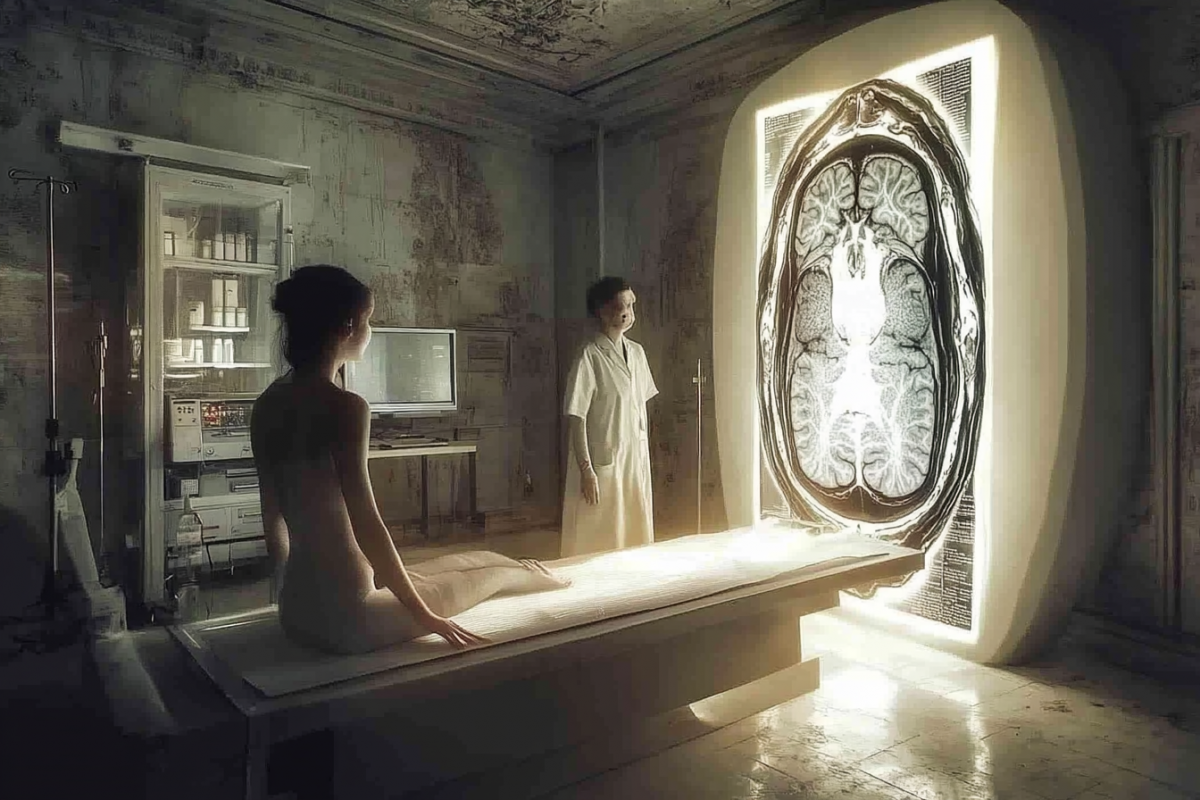
The human body is full of mysteries, but some medical conditions go beyond science’s ability to explain. From bizarre syndromes that alter perception to inexplicable physical transformations, these rare disorders challenge everything we know about medicine. Some defy logic, while others seem straight out of science fiction, leaving doctors and researchers searching for answers. Here are some of the most baffling medical conditions that continue to puzzle the scientific world.
Alien Hand Syndrome: When a Limb Acts on Its Own

Imagine waking up to find your hand moving against your will, grabbing objects, or even attacking you. Alien Hand Syndrome causes a person’s limb to act independently, as if possessed by an unseen force. Patients report feeling as though their own hand is a separate entity, disobeying their commands. Scientists believe it’s linked to brain damage, but why it happens—and how to stop it—remains a mystery.
Walking Corpse Syndrome: Feeling Dead While Alive

People with Cotard’s Delusion genuinely believe they are dead, missing organs, or even decomposing. Some stop eating or bathing, convinced their body no longer requires care. This eerie disorder is thought to stem from a malfunction in the brain’s ability to recognize itself, leading sufferers to disconnect from reality. Despite theories, no one fully understands what causes this haunting perception of death.
Stone Man Syndrome: When Flesh Turns to Bone

Fibrodysplasia Ossificans Progressiva is a rare genetic disorder that slowly turns muscle and connective tissue into solid bone. Over time, patients become trapped within their own skeleton, unable to move as new bone growth locks their joints in place. There is no cure, and surgical removal of the extra bone only triggers more growth. Why the body creates this second skeleton is still a medical enigma.
Exploding Head Syndrome: The Sound That Isn’t There

Some people wake up in terror, convinced they’ve heard a massive explosion, gunshot, or scream—yet no sound actually occurred. Known as Exploding Head Syndrome, this condition remains largely unexplained, though researchers suspect it involves misfiring neurons during sleep transitions. While harmless, the experience can be terrifying, leaving sufferers afraid to fall asleep. Why the brain manufactures these phantom sounds is still unknown.
Werewolf Syndrome: When Hair Covers the Body

Hypertrichosis, often called Werewolf Syndrome, causes excessive hair growth across the body, sometimes covering the face entirely. The condition can be present from birth or triggered later in life, often with no clear cause. Though linked to genetic mutations, why it occurs in some individuals and not others remains unclear. Some historical figures with this condition even became circus attractions due to their striking appearance.
Foreign Accent Syndrome: Waking Up with a Different Voice

After a head injury or stroke, some people inexplicably wake up speaking with a foreign accent they’ve never learned. This rare condition alters speech patterns, making native speakers sound as if they’re from another country. Neurologists suspect the brain is rewiring language centers, but how a new accent emerges without exposure is a mystery. Some cases have persisted for years, defying explanation.
The Girl Who Can’t Feel Pain: A Life Without Warning Signs

A rare genetic mutation causes some individuals to feel no pain at all, even with severe injuries. While this might sound like a superpower, it’s incredibly dangerous—burns, fractures, and infections can go unnoticed until they become life-threatening. Scientists have identified certain gene mutations linked to this condition, but why some people are born completely pain-free is still not fully understood.
Alice in Wonderland Syndrome: Distorted Reality in the Blink of an Eye

Some people experience bizarre episodes where objects shrink, grow, or warp before their eyes—just like in Lewis Carroll’s famous tale. Alice in Wonderland Syndrome is a neurological condition that distorts perception, making time, space, and even body parts feel unreal. Often linked to migraines or epilepsy, the exact cause remains unknown. Why the brain suddenly alters reality so drastically is still a puzzle.
Laughing Death: The Disease That Ends in Uncontrollable Laughter

Kuru, once found among the Fore people of Papua New Guinea, caused victims to laugh uncontrollably as their nervous system deteriorated. The fatal disease spread through ritualistic cannibalism, but its unique neurological effects still baffle researchers. Though now nearly extinct, the illness remains a chilling reminder of how little we understand about the connections between the brain and behavior.
Sudden Unexplained Death Syndrome: Dying with No Cause

Some people go to sleep perfectly healthy and never wake up—yet autopsies reveal no clear cause of death. This phenomenon, known as Sudden Unexplained Death Syndrome (SUDS), is most commonly reported in young adults from Southeast Asia, particularly in men. Some cultures blame supernatural forces, while scientists suspect genetic or cardiac abnormalities. However, why it targets specific groups and remains undetectable is still unsolved.
Aquagenic Urticaria: When Water Causes Pain

For those with Aquagenic Urticaria, simply touching water—even their own sweat—can trigger painful rashes and hives. Bathing, swimming, or walking in the rain becomes unbearable, making everyday life incredibly difficult. Researchers believe it’s linked to histamine release in the skin, but why some people’s bodies reject water remains a mystery. The human body is mostly water, so why does it sometimes turn against itself?
The Man Who Sees Time: A Living Calendar

A rare condition called Time Perception Synesthesia allows individuals to “see” time as physical shapes in space. Days, months, and years appear as vivid visual structures that wrap around them, creating an internal calendar. Scientists believe it’s a form of enhanced memory processing, but why only a handful of people experience time in this way remains unknown. Could this be a glimpse of how the brain processes time differently for each of us?
Sleeping Beauty Syndrome: When Sleep Lasts for Weeks

Kleine-Levin Syndrome causes individuals to fall into deep sleep for days or even weeks at a time, waking only for short periods to eat or drink. During these episodes, patients experience confusion, hallucinations, and personality changes. The condition is linked to abnormalities in the brain’s hypothalamus, but why these sleep cycles are triggered is still unclear. Is this a glitch in the body’s internal clock, or something far stranger?
Beyond the Limits of Science

Despite modern medicine’s advancements, some conditions still leave doctors scratching their heads. These bizarre disorders challenge the boundaries of what we understand about the human body and mind. As technology and research evolve, perhaps one day we will unlock their secrets—or maybe some mysteries are meant to remain unsolved. How many more undiscovered conditions might still be lurking within the realm of the unknown?





